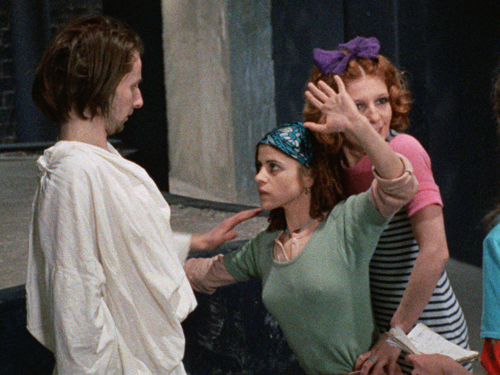
Bernard Eisenschitz, Jean-André Fieschi, Eduardo de Gregorio, 1973
Autrefois, dans une tradition dite classique du cinéma, la préparation d’un film consistait d’abord à rechercher une bonne histoire, à la développer, à l’écrire, à la dialoguer ; à partir de ça, à chercher des comédiens qui correspondraient aux personnages, ensuite à mettre en scène, etc. C’est une chose que j’ai faite deux fois, avec Paris nous appartient et La religieuse, et cette méthode-là m’est apparue complètement insatisfaisante, ne serait-ce qu’à cause de l’ennui énorme que ça entraîne. Ce que j’ai essayé depuis – après beaucoup d’autres, en suivant les précédents de Rouch, de Godard, d’autres... – c’est plutôt de tâcher de trouver, seul ou à plusieurs (je pars toujours de l’envie de tourner avec tel et tel comédien), un principe générateur qui ensuite, comme de lui-même (je souligne le comme), se développerait de façon autonome, et engendrerait une production filmique dans laquelle on pourrait après découper en quelque sorte, ou plutôt « monter », un film destiné à être projeté à des spectateurs éventuels.